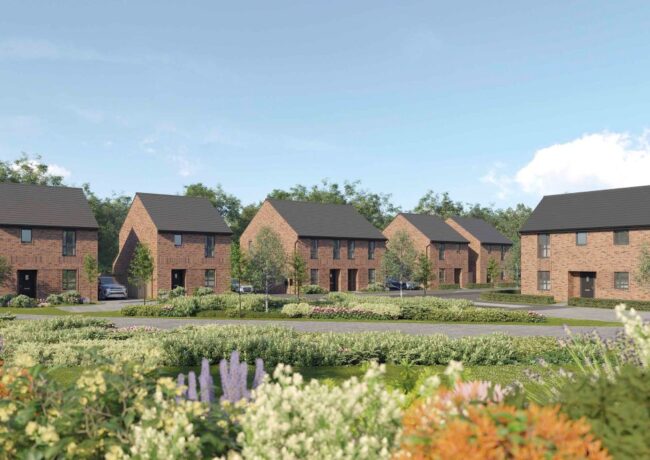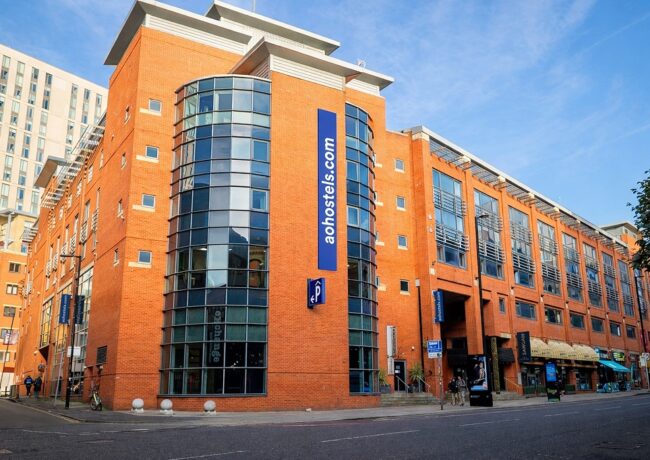Event Summary
Place North UKREiiF breakfast conference | Summary + photos
Place North’s invitation-only briefing on the Wednesday morning at UKREiiF explored one of the biggest and most enduring obstacles the property and development industry is seeking to overcome – society’s distrust of the sector.
This event, held at the Marriott hotel in Leeds, was sponsored by Placefirst, Close Brothers Property Finance, Onward Homes, Brabners, DACI, Stantec, Yardi, Morgan Sindall Construction and Arbtech.
The speakers were:
Nuala Gallagher, corporate director of city development, Liverpool City Council
Pam Smith, chief executive, Newcastle City Council
Becca Heron, strategic director of growth & development, Manchester City Council
Peter Connolly, chief executive, Igloo Regeneration
Alistair Chapman, executive director – UK development advisory, CBRE
Paul Johnson, investment zone strategic lead, South Yorkshire Mayoral Combined Authority

The panel spoke to more than 200 delegates about how to overcome society’s distrust of the sector. Credit: PNW
Economic volatility, increasing regulation, and marginal viability mean it has arguably never been harder to deliver regeneration projects. A lack of trust in whether councils are acting with the interests of local communities at heart and a general scepticism around the motives of private sector developers are making it even more difficult.
Six senior public and private sector voices gathered in front of more than 200 delegates to discuss the reasons for this lack of trust and explore how the industry can win the public over through more meaningful engagement, following through on promises around affordable housing, and delivering better quality products.
Perceptions
Alistair Chapman, executive director at CBRE, summed up why he thinks society does not trust the property sector.
“I think there is an issue around transparency and a perception of self-interest,” he said.
He said the planning process is often not open enough and that the way some developers behave is not conducive to fostering trust.
“A planning application is the classic example. There’ll be a consultation event, but it’ll be an invitation-only on a Tuesday night in the wrong part of town.
“And then the whispers start in the local community. And then the developer arrives, he or she, nice car, nice suit, making too much money. And before you know it, the trust isn’t there.”
He said that to overcome this, developers must engage with the local community as early as possible.

Alistair Chapman said the development industry needs to involve communities in plans earlier. Credit: PNW
Meaningful engagement
Becca Heron, strategic director of growth & development, Manchester City Council, which is regenerating some of the city’s poorest areas, said the issue of societal mistrust is not confined to the property sector.
“There has been an erosion of trust against the establishment generally”, she said.
In terms of regeneration, this is partly down to broken promises, Heron added, and partly down to a lack of effective consultation with the people being affected by regeneration plans.
“Genuine, meaningful, extensive, and prolonged engagement” is what is needed, she said.
“For us it is about really trying to listen to and understand what people are wanting to see in their areas.
“It’s also about being honest about what you can and you can’t do. I think when you can start to explain to communities that if we build more homes in this area, if we densify…that will support new shops, a new medical centre, a new Metrolink stop, then I think people can start to see what they get from that as well.”
Accountability
Nuala Gallagher, Liverpool City Council’s corporate director of city development, said a “root and branch change” within the local authority had helped to rebuild trust.
Included in this was the introduction of neighbourhood managers that effectively act as a conduit between the council and local residents in 13 areas of the city in a bid to address concerns and shape plans.
“The neighbourhood managers’ work has been to listen and to engage, but also to be that constant presence in the community,” Gallagher said.
“I think from a council perspective we need to build trust, but then also we can be someone that can be held accountable to communities.”
Plain speaking
One of the biggest areas of concern for residents is around housing. There is a perception among some local groups that new housing is unaffordable and being built for other people, rather than existing residents.
Pam Smith, chief executive of Newcastle City Council, said speaking in plain English, not developer-speak, about what a regeneration project will consist of and the impacts it will have, will result in more effective communication with communities.
She added that including young people in the process of redevelopment could pay dividends down the line.
“It’s about developing that aspiration, and we mustn’t miss young people out of that,” she said.
“If young people are given jobs to build houses in their communities, then that’s going to resonate with them.”

Nuala Gallagher [left] and Pam Smith talked about how their councils are pursuing inclusive growth. Credit: PNW
Keeping promises
Peter Connolly, chief executive of Igloo Regeneration, said the industry faces a “long battle” to win the approval of the public and that some of its trust issues are a result of poor-quality product.
“Too many times, developers and local authorities water down proposals for a series of reasons, and they’re often good reasons to do with viability and all the rest of it, but, but then the community distrusts us,” he said.
One solution to this is to bring the community on board early to actually have a say in designing schemes.
Paul Johnson, investment zone strategic lead, South Yorkshire Mayoral Combined Authority, agreed, saying that local communities need to be given more of a say in where development happens and what it looks like.
“I think the system of planning and how we do engagement is just emblematic of what’s wrong,” he said.
“Often [development] is in places that council picks. It’s not where the community wants [it] to be.
“In terms of planning it’s about getting buy-in early. If you bring people along with you and they feel like they have stake in it, you’re more likely to get people saying yes to things rather than no.”
What’s next?
Join Place North at our upcoming events
5 June – Cheshire and North Wales Development Update
12 June – North East Emerging Development Hotspots
19 June – Cumbria Development Update
Click any image to launch gallery







































